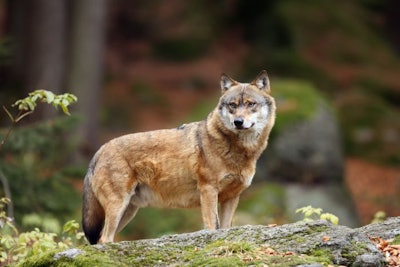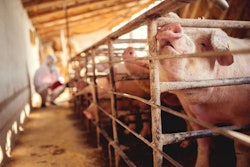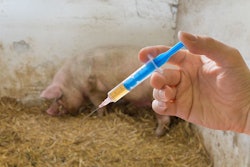
Rather than being vectors for spreading African swine fever, wolves may reduce the amount of virus in the environment by eating wild boar carcasses.
New research finds wolves can be helpful in reducing the spread of African swine fever (ASF) among the wild boar population.
Because wolves hunt wild boar and eat their carcasses, they reduce the amount of virus spread in the wild without spreading it themselves, according to the report, published in the journal Viruses.
It is known that wild boar can spread ASF among their own populations, as well as to domestic pigs. It has been speculated that carnivores, such as wolves, can be vectors to spread the virus because of their high daily movement and long-range dispersal ability.
To test this, researchers from the University of Gdańsk and the University of Warsaw in Poland analyzed 62 wolf fecal samples for the presence of the ASF virus DNA, collected mostly in parts of Poland declared ASF zones. This dataset included 20 samples confirmed to contain wild boar remains, 13 of which were collected near places where GPS-collared wolves fed on dead wild boars. All analyzed fecal samples were negative for the ASF virus, however, eight out of nine wild boar carcasses that were fed on by the wolves were positive.
“Thus, our results suggest that when wolves consume meat of ASFV-positive wild boars, the virus does not survive the passage through intestinal tract. Additionally, wolves may limit ASFV transmission by removing infectious carrion,” the researchers said in their report. “We speculate that in areas where telemetric studies on large carnivores are performed, data from GPS collars could be used to enhance efficiency of carcass search, which is one of the main preventive measures to constrain ASF spread.”
While the results of the research suggest wolves are unlikely vectors for long-range ASF spread, it cannot be excluded that carnivores, including wolves, may sometimes spread the virus on their fur or by carrying off parts of infectious carcasses.
“Foxes and raccoon dogs were observed ripping parts wild boar carcasses into pieces and carrying them away. Caching behavior was also reported in American wolves,” the report said. “However, this behavior is restricted to short-range transport of food within the animal’s home range, e.g., by parents providing food to their offspring, so it could not be responsible for long-range disease spread. Moreover, mammals usually groom their fur when it gets dirty with blood or other body fluids, thus reducing the possibility of virus transfer via contaminated fur.”
Researchers suggest that the removal of wild boar carcasses by wolves is one of many control and eradication measures that can be utilized in the fight against ASF.

















